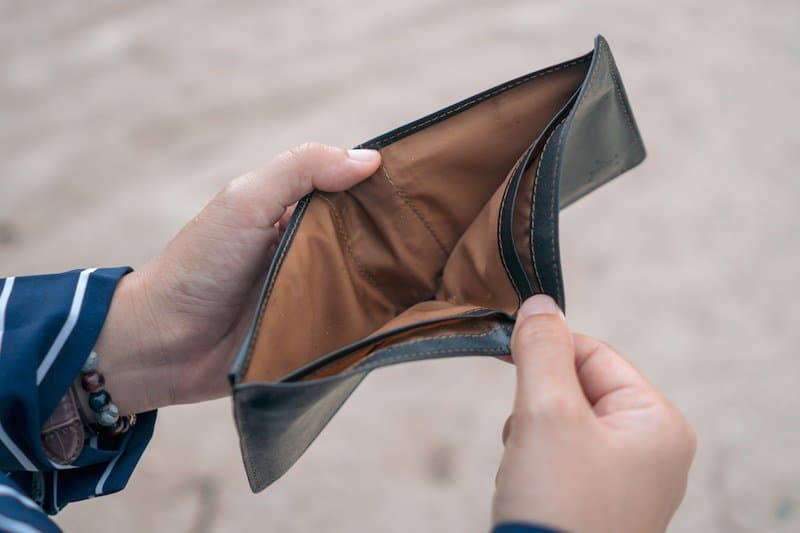When you’re a young adult it’s easy to fall into the trap that time is still on your side. In a blink of an eye, you’ll wake up at 40 with no savings, a mountain of debt, and only one culprit – yourself.
What bothers me the most is that financial literacy is not taught in school. No one teaches you any money managing skills or how to save money once you start earning. I had to make about a hundred mistakes and learn the hard way. But you don’t have to, get your knowledge right away.
Start with the basics.
Stop Impulse Purchases

Spending money has become more of a hobby than a necessity. With heaps of social media ads targeting you every time you reach your phone, it’s almost impossible to resist an impulse purchase.
Try to train your self-control. Go shopping rested and on a full stomach.
Make a list of things you need to buy and stick to it.
Use the 30-day rule, if you want to buy something wait for 30 days, and if you still want it then you can get it.
Unfollow celebrities and influencers who advertise new things daily. Avoid strolling around shopping malls for entertainment, it’s triggering and you’re likely to end up spending money.
Create a Budget And Stick To It
The number 1 thing you hear when you ask about saving money tips is BUDGET. With hundreds of simple budgeting methods, it’s easier than ever to choose the one that suits your needs.
Try cash envelopes where you put an amount of money in every envelope titled with a budget category: rent, gas, groceries, cosmetics, fun, etc.
If you can’t imagine carrying a couple of envelopes every day, try zero budgeting. It’s great if you don’t have a consistent paycheck.
The most important thing is to make it realistic. If you usually spend $300 on groceries, don’t go and make your grocery budget $150. A budget should not deprive you of the things you enjoy, it’s meant to open your eyes to where does your money goes and what you can do about it.
Beware Of Credit Cards

Credit cards are a great invention when used the right way. Keep only one credit card and pay more than the minimum installment every month.
If you can’t pay it off in full every month, choose a credit card with a low interest rate. Later, when you learn how to handle your finances, switch to a credit card with a rewards program. Whether it’s perks or bonus points for traveling, this type of card often comes with a higher interest rate.
When it comes to credit cards, there is one rule: if you can’t afford to buy something, don’t buy it with your credit card. Life isn’t linear, and sometimes you will have to use your credit card, but beware of overspending.
Live Below Your Means
Get prepared for any mishaps. Don’t live paycheck to paycheck. The most effective money-saving tip any young adult can learn is to live below what you earn. This way, you’re prepared for whatever life brings you.
If you get a raise, don’t go thinking about what you can spend it on. Don’t rent a bigger apartment, don’t get a card with a higher limit, and don’t buy a luxury you do without. Instead, put it towards debt or savings.
Learn About Your Taxes
As a young adult fresh out of college, you know little about taxes. When interviewing for your first job make sure you understand how much your salary will end up being after taxes.
This way, you’ll know if the take-home pay will be enough to cover and exceed your expenses.
Income taxes vary from state to state, so use an online calculator to provide you with the necessary information.
Skip The Avocado Toast

Eating out is the main social activity for many young adults. While skipping that avocado toast won’t make you rich or help you buy a house, it certainly eats up your budget. You don’t have to cut out restaurants to save money. But it helps if you visit them less often.
Try meal prepping your work lunch at home. Aim to cook dinner at least 5 nights a week and set a budget for restaurants and take-outs.
It’s Never To Early To Save For Retirment
There’s no better feeling than to work because you want to not because you have to. To reach this you need to start saving for retirement as soon as you get your first job.
If your company has a 401K match plan make good use of it. For every $100 you put towards your 401K your company matches the same – that’s free money!
Consider Roth IRA if you earn $140,000 or less a year. With Roth IRA you pay tax on the money going into your account but all your future withdrawals are tax-free.
Build An Emergency Fund
Any young adult will go through the process of losing a job they thought was secure. To make this experience more bearable build up an emergency fund. Calculate your monthly expenses and try to save at least 3 times as much. If you can, make it double. Don’t wait to have “extra money”- put money aside from every paycheck into a savings bank account.
This way you’ll take the stress off a hefty bill for a sudden car breakdown or an ER trip. If you lose your job out of the blue you won’t get desperate since you’ll have enough money to survive for at least three months.
Once you get back to receiving regular income put back the money you took out of the emergency fund!
Monetize Your Hobby
If you’re good at something – never do it for free. Anything you can do good, try and make it better and sell it! No matter if it’s a home repair, driving, painting, writing, hand-crafting jewelry, or baking, make it a side gig.
With a 9 to 5 job, it’s hard to pick up a shift at another job, but a freelancing gig is easy to fit into your schedule. Use this extra income to build your emergency fund or invest.
Try A No-Spend Challenge

Pop-culture nowadays revolves around different kinds of challenges so why not try a no-spend challenge? A no-spend challenge refers to not spending money on anything besides necessities.
How does it work? Pay all your bills, buy groceries, home products, and nothing else. No new clothes, not going to the movies, no eating out, no luxuries. Start by setting a goal of a couple of no-spend days a week to a whole no-spend month!
Pay Off Your Debt
After building your emergency fund, direct your money towards debt payoff. Don’t get all glamorous with the freed up money.
Buying a brand new car or taking a tropical vacation you can’t afford to pay in full will result in building more debt on top of your preexisting student debt.
Try and tackle the debt with the highest interest rate first, whether it’s a car loan or a credit card.
Calculate your debt-to-income ratio and try to keep it under 36%. Don’t ignore your student debt! Compare all the repayment options available, to determine which one will accumulate less interest in the long run.
Start Investing

Learn how your money can make you money. Turn your savings into a source of income. If you’re most comfortable with having your money in the bank look for high-yield savings accounts.
You don’t need to have thousands of dollars to start investing. If you’re willing to explore the waters of investing, start simple; find out what your investment options are and what risks are there.
Explore micro-investing apps or consult a professional. Always make sure to diversify your investments to reduce risks.
Get Roommates
Renting the most expensive apartment you can afford is a guaranteed way to end up living paycheck to paycheck. As a young adult you spend only a fraction of your day at home so why spend so much money on housing?
Your 20s are the perfect time to try living with roommates. You’ll save money by sharing not only rent but utilities too, or even carpool with your roomie to work. This way you’ll end up saving for a downpayment on a house once you decide to settle.
Conclusion
You don’t need a degree in finance to learn how to manage your money.
Make your money work for you and ensure your financial freedom in the future.
You don’t have to be an expert to plan and execute your financial goals. All you need is passion and discipline. Reduce the stress of daily life by preparing for what might happen, but don’t forget to enjoy life as a young adult.

